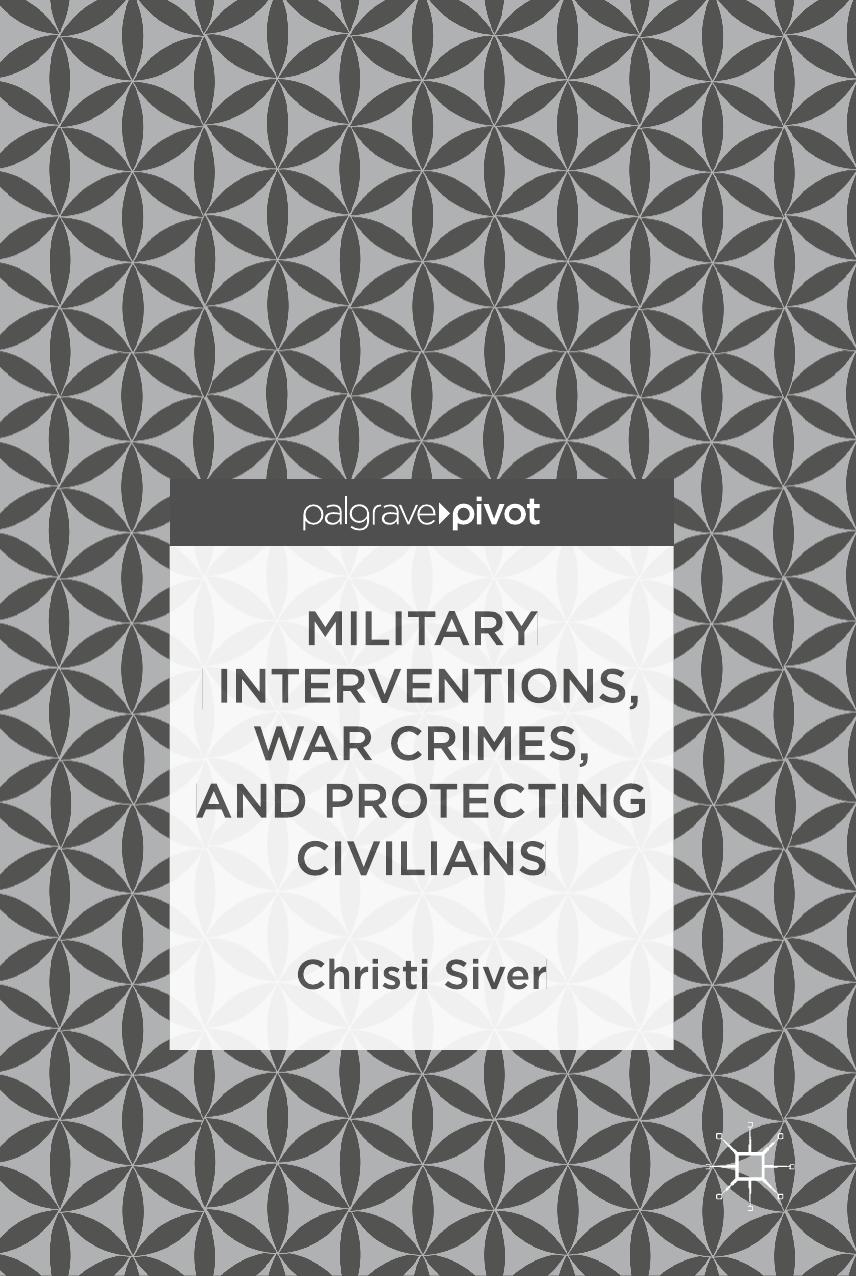Military Interventions, War Crimes, and Protecting Civilians by Christi Siver

Author:Christi Siver
Language: eng
Format: epub, pdf
Publisher: Springer International Publishing, Cham
Poor Morale and Inexperience
Historians and British military authorities have also cited the lack of experience to explain the behavior of certain units during the Emergency. Despite extensive British participation in jungle warfare in Burma during World War II, many of those veterans left the army before units deployed to Malaya (Marston 2006, 97). The units also suffered because of budget cuts and overstretch after World War II (Erskine 1956, 469). After the soldiers’ revelations in The People, the Scots Guards headquarters wrote a memo that was highly critical of the unit: “It will be remembered that 2SG [Scots Guards ] had only been in Malaya a matter of weeks, and that for some members of the patrol, which included MT [military transport] drivers, sick men, and at least one member of the Corps of Drums, this was almost certainly their first operation.”32 However, this description conflicts with the testimonies of many of the unit members, who claimed they participated in several patrols before setting out for Batang Kali .33 If the Scots Guards patrol had included such low quality soldiers, one would expect that their lack of skills would make the killing all of the “escaping” prisoners unlikely; a few of the villagers should have escaped, or at least incurred injuries but survived. If lack of experience or shortage of patrols explained the unit’s reaction to the situation at Batang Kali , there should have been many more cases of civilian massacres.
Many critics blamed the National Service program for weakening British army units and sending unmotivated troops to fight.34 Under this post-World War II program, all young men in the United Kingdom were to serve in the army for a set period of time.35 These soldiers often would deploy to Malaya but rotate out just after completing jungle warfare training or after gaining patrol experience (Erskine 1956, 473). More cynically, some critics feared that National Servicemen lacked the drive or character to be good soldiers (Jackson 1991, 45). While many officers and soldiers agreed that National Servicemen caused problems of additional paperwork and frequent troop rotation, few argued that they did not serve as competently as regular soldiers. William John Martin, a member of the Suffolk Regiment , argued: “At least 75% of the men in 1st Battalion Suffolk Regiment, one of the most successful battalions in Malaya, were National Servicemen, where the majority of our junior officers were National Service officers.”36 GOC Robert Urquhart, who took over from General Boucher in 1950, reported: “I make no distinction between my National Service boys and my regular soldiers: one is as good as the other.”37 Many soldiers, regardless of unit, agreed that there was little discernible difference between national servicemen and regular soldiers (Simpson 1992, 155).
Rather than experience or composition, units seemed most impacted by low morale. Given the unclear mandate from the British government, soldiers did not understand why they were in Malaya or what they were supposed to accomplish. The inattention to details of the conflict at the highest levels of the British government undermined the soldiers’ motivation and morale.
Download
Military Interventions, War Crimes, and Protecting Civilians by Christi Siver.pdf
This site does not store any files on its server. We only index and link to content provided by other sites. Please contact the content providers to delete copyright contents if any and email us, we'll remove relevant links or contents immediately.
The Pirates of Somalia by Jay Bahadur(1623)
Political Theology by Carl Schmitt(1577)
The Holocaust: A New History by Laurence Rees(1521)
The Social Animal by David Brooks(1452)
A Practical Guide to International Arbitration in London by Hilary Heilbron(1434)
Restitution by Restitution(1424)
Pirates of Somalia by Jay Bahadur(1381)
Coercing Virtue by Robert H. Bork(1357)
The Nuremberg Interviews by Leon Goldensohn(1304)
Basic International Corporate Taxation by Sebastiano Garufi(1214)
A History Of Thailand by Baker Chris(1190)
International Trade and Business: Law, Policy and Ethics by Gabriël Moens & Peter Gillies(1137)
The Global Commons by Susan J. Buck(1137)
The Sovereignty of Human Rights by Macklem Patrick(1113)
Blood Profits by Vanessa Neumann(1113)
Asian Waters by Humphrey Hawksley(1113)
Spring Fever: The Illusion of Islamic Democracy by McCarthy Andrew C(1101)
The Nuremberg Trials: The Nazis and their Crimes Against Humanity by Roland Paul(1043)
Crimes Against Humanity: Historical Evolution and Contemporary Application by M. Cherif Bassiouni(1026)
